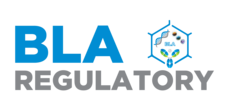The FDA’s Support for Clinical Trials Advancing Rare Disease Therapeutics (START) Pilot Program — a collaboration between CDER and CBER — was launched in September 2023 to accelerate further the development of novel drug and biological products for treating rare diseases. By offering a more rapid, ad-hoc communication mechanism, START aims to reduce the time typically lost waiting for formal meeting cycles, sometimes taking weeks or months, by providing selected sponsors with frequent, milestone-driven interactions with the FDA.
Fast-Tracking Cures for Rare Diseases: Inside the FDA’s START Pilot Program
May 28, 2025
At a Glance:
- What You’ll Learn: How the START Pilot Program streamlines trial design, reduces timelines, and de-risks early-stage development.
- Who It’s For: R&D, Sponsors, Regulatory Affairs, Investors, Patient Advocates.
- Next Steps: Check START eligibility and schedule a regulatory health check
The Case for Innovation:
- Unmet Medical Needs: There are an estimated 10,000 rare diseases, yet only 5 percent of them have an FDA-approved treatment.
- Regulatory Bottlenecks: Traditional regulatory interactions can delay pivotal clinical trials or pre-BLA/NDA meetings by months. START tests whether reducing those waiting times translates into faster development.
- Agency Commitment: As CDER Director Patrizia Cavazzoni, M.D., puts it:
“We share the goal of delivering potentially life-saving products to patients, and are committed to helping sponsors achieve regulatory milestones, while ensuring the safety, effectiveness, and quality of these products.”
Eligibility Criteria:
- General Requirements: Sponsor with active IND in eCTD format and CMC aligned with clinical development.
- CBER: Gene or cell therapies for rare, serious conditions likely to lead to significant disability or death within the first decade of life.
- CDER: Drugs for rare neurodegenerative or rare genetic metabolic diseases
The START Advantage: Benefits and Momentum
Optimize Study Design: Real-time protocol feedback through “office hour” meetings with FDA experts.
De-risk Early Trials: Identify pitfalls before pivotal launch.
Accelerated Development through Streamlined IND and NDA/BLA Pathways.
Rapid Written Responses to Critical Questions.
Reg Affairs: Stay ahead of regulatory expectations and guidance.
2× Faster Patient Access vs. standard pathways
30% Fewer Protocol Amendments across the START cohort
$5–10M Savings in early-stage trials per sponsor
Reduced Regulatory Uncertainty: Early engagement with regulators can reduce the risk of costly delays.
Early Signals of Value: Spot START-backed programs poised for rapid advancement.
Reduced Costs: Reducing regulatory delays by even a quarter can translate into multi-million-dollar savings in operational burn.
Faster Access: Pivotal studies start sooner, receiving earlier access to potentially life-saving treatments.
“START’s focused guidance on our biomarker strategy was a game-changer—cutting months off our timeline and keeping us patient-focused.”
Program Expansion: Potential to include more sponsors and disease areas in late 2025.
Data-Driven Refinement: Lessons will inform standard FDA rubrics for high-need areas.
Model for Innovation: May inspire pilots for cell therapies & precision medicine.
START in Action: Hand-picked Success Stories
- Larimar Therapeutics — Nomlabofusp (Friedrich’s Ataxia)
- Impact: Shares ↑ 15% post-START selection in early 2024
- Accelerated Design: Protocol refinements (e.g., alternative biomarkers) enabled FDA acceptance of a rolling IND package, accelerating the trial start by 6 months
- Moderna — mRNA-3705 (Methylmalonic Acidemia)
- No Approved Therapies: Close CBER support refined key endpoints early.
- Timeline: Pivotal study initiation planned for late 2025, ahead of schedule.
- Neurogene — NGN-401 (Rett Syndrome)
- Selected Early: One of 3 biologics in CBER pilot.
- FDA Biomarker Guidance: Accelerated patient stratification decisions.
- Denali Therapeutics — DNL 126 (Sanfilippo Syndrome)
- Regulatory Certainty: CBER collaboration clarified CMC controls, de-risking manufacturing timelines
“Insight from this pilot will help generate high-quality data for future applications.”
— Peter Marks, CRFR Director
A Catalyst for Change in Rare Disease Drug Development
The START Pilot Program is more than an initiative—it’s a bold reimagining of how the FDA engages with innovators to address urgent, underserved patient needs. By reducing communication barriers, START is unlocking faster, safer pathways to novel therapies, while inspiring new models of regulatory collaboration. As expansion plans take shape for 2025, the program signals a paradigm shift: one where speed, science, and patient focus go hand in hand. Whether you’re an innovator, investor, or advocate, START represents an opportunity to transform rare disease treatment as we know it.
References
- FDA. Support for Clinical Trials Advancing Rare Disease Therapeutics (START) Pilot Program. Retrieved from https://www.fda.gov/science-research/clinical-trials-and-human-subject-protection/support-clinical-trials-advancing-rare-disease-therapeutics-start-pilot-program
- FDA. FDA Launches Pilot Program to Help Further Accelerate Development of Rare Disease Therapies. Retrieved from https://www.fda.gov/news-events/press-announcements/fda-launches-pilot-program-help-further-accelerate-development-rare-disease-therapies
- FDA. FDA Opens Doors for More Treatments for Rare Diseases through the New START Pilot Program. Retrieved from https://www.fda.gov/drugs/our-perspective/fda-opens-doors-more-treatments-rare-diseases-through-new-start-pilot-program

